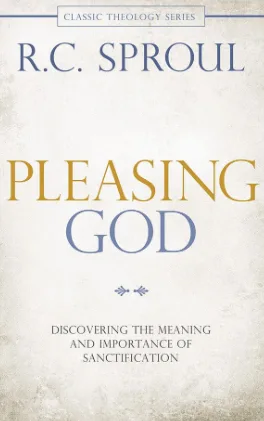Tender Grace

“I see men like trees, walking” (Mark 8:24). What a strange experience. Walking trees are not a normal sight for normal people. But the man who saw “walking trees” was a man in transition. He was at an intermediate stage between total blindness and full clarity of vision. He was, as we shall see, a representative of all Christians in their progress toward pleasing God.
When the Bible records the miracle healings wrought by Jesus, the healings are usually instantaneous and complete. Jesus did not partially raise Lazarus from the dead. The man with the withered arm did not recover in stages. In most other miracles, the person was changed instantly.
So the episode recorded in Mark’s Gospel is unusual. It records the healing of a blind man in two stages:
And they came to Bethsaida. And they brought a blind man to Him, and entreated Him to touch him. And taking the blind man by the hand, He brought him out of the village; and after spitting on his eyes, and laying His hands upon him, He asked him, “Do you see anything?” And he looked up and said, “I see men, for I am seeing them like trees, walking about.” Then again He laid His hands upon his eyes; and he looked intently and was restored, and began to see everything clearly. (Mark 8:22-25, NASB)
This is a story of the power and the grace of Christ. It is a story of tender grace. When Jesus was approached by people concerned about the plight of the blind man, the first act He performed was to “take the blind man by the hand.” Holding his hand, Jesus led the man out of town.
Picture the scene. The Son of God surely had the power to heal the man on the spot. Instead, Jesus led him away from the crowd. He ministered to him in private. The blind man was not a spectacle for the curious to gaze upon. Our Lord directed the man’s steps. Never in his life did the blind man have so secure a guide. There was no danger of falling, no menace of tripping. He was being led by the hand of Christ.
Had Jesus’ act of tenderness ended at that point, I’m sure it would have been enough. The blind man could tell the story to his life’s end. “He touched me!” he could exclaim, and he would have savored the experience forever. But Jesus was not finished. He took the next step.
The man who saw “walking trees” was a man in transition. He was at an intermediate stage between total blindness and full clarity of vision.
When they were away from the crowd Jesus did something that could offend our sensibilities. He spit on the man’s eyes. Now, to have someone spit in our eye is to experience a shameful, degrading insult. But the purpose of Jesus was not to insult, but to heal. He touched the man and asked him if he could see anything.
It was at this point that the man began to see men as walking trees. He saw what any blind man would give anything to see. His vision was dim, blurred—but he could see. Moments earlier he could see nothing. His eyes were useless. He lived in perpetual darkness. But now, suddenly, he could discern moving forms. He could detect the difference between light and shadow. A new world was opening before him. No longer would he require that someone lead him by the hand. He could throw away his cane.
Jesus was not finished. He applied a second touch. With the second touch the things that were blurred came into sharp focus. Now the man could clearly distinguish between trees and men. Now he saw trees standing still, their branches swaying gently in the breeze. He saw men as men, walking. He could discern the difference between short men and tall men, fat men and thin men, young men and old men. He was beginning to recognize the minute facial characteristics that provoke recognition of distinctive personal identities. Perhaps he could have done it before by means of touch. Possibly he could have run his fingers over a person’s face and recognized certain people. He surely would not have noticed the unique sounds of different people’s voices. But now he could keep his hands in his pockets and still know who was standing before him. The first face he saw clearly was the face of Christ. For him it was the beginning of the blessed vision.
Though the Bible doesn’t say so, it appears certain that his eyes were not the only part of the man that was healed. With the touch of Christ comes also the healing of the heart. His heart of stone had been changed to a heart of flesh, pulsating anew with spiritual life.
The story of this healing was not intended as just a parable of the Christian’s spiritual renewal. The event was a real miracle in space and time, a prodigious display of the power of Christ. But it serves us well as a parallel of spiritual renewal.
The Bible uses the metaphor of blindness to describe our fallen estate. We are all men born blind. We enter this world in a state of spiritual darkness. We do not see the things of the kingdom of God. By nature we have scales upon our eyes, cataracts so thick that we cannot even perceive men as trees, walking. It requires a special act of tender grace for us to see the kingdom of God.


